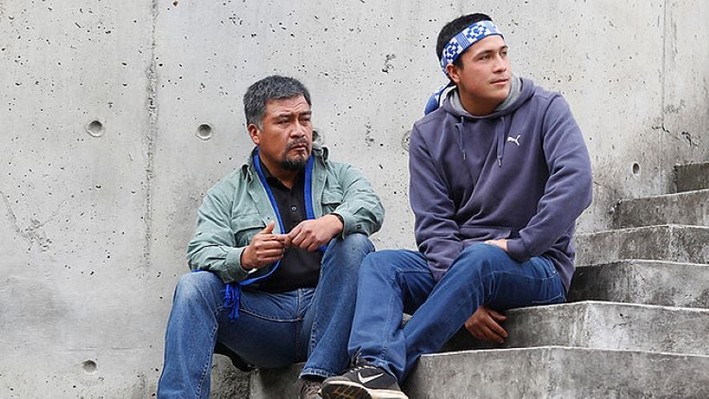- Son of CAM leader Ernesto Llaitul Pezoa is acquitted of charges of attempted homicide and arson in the Biobío Region.
In an unexpected turn, the Oral Criminal Court of Los Ángeles ruled for the acquittal of Ernesto Llaitul Pezoa, who had previously been sentenced to over 15 years in prison. The decision comes after a nullity appeal that culminated in a new trial, highlighting the complexity of the conflict in southern Chile.
Ernesto Llaitul Pezoa, son of the well-known leader of the Arauco Malleco Coordinator (CAM), Héctor Llaitul, was acquitted by the Oral Criminal Court of Los Ángeles in a second trial.
Llaitul Pezoa had been accused by the Biobío Regional Prosecutor's Office of the crimes of attempted homicide and arson of trucks, both completed and attempted, in the Paraguay sector of the Los Ángeles commune.
In November of last year, the court had sentenced Llaitul Pezoa to 15 years and three months in prison, along with three other CAM members: Esteban Henríquez, Ricardo Delgado, and Roberto Villouta, while Eduardo Cornejo was convicted as an accomplice to the arson. However, the defense appealed the ruling, and in February of this year, the Concepción Court of Appeals ordered a new trial.
The prosecution argued that the community members, along with other unidentified individuals, were part of an organization that planned and carried out acts of territorial vindication and sabotage. The alleged events had occurred in September 2021.
The second trial, which began in late May, included testimonies from 60 witnesses and experts, as well as documentary, photographic, and other evidence. Llaitul Pezoa's acquittal marks a turning point in a case that has drawn public attention due to its connection to the territorial conflict in the Biobío Region.
The court's decision has been met with mixed reactions, reflecting the polarization surrounding the situation of indigenous peoples and land ownership in southern Chile. While some view the acquittal as a triumph of justice and the right to defense, others see it as a setback in the fight against violence in the area.
The acquittal of Ernesto Llaitul Pezoa not only closes a chapter in his personal case but could also have implications for how conflicts related to land claims and the autonomy of indigenous peoples in Chile are addressed.







Comentarios (0)
No hay comentarios aún. ¡Sé el primero en comentar!
Deja un comentario